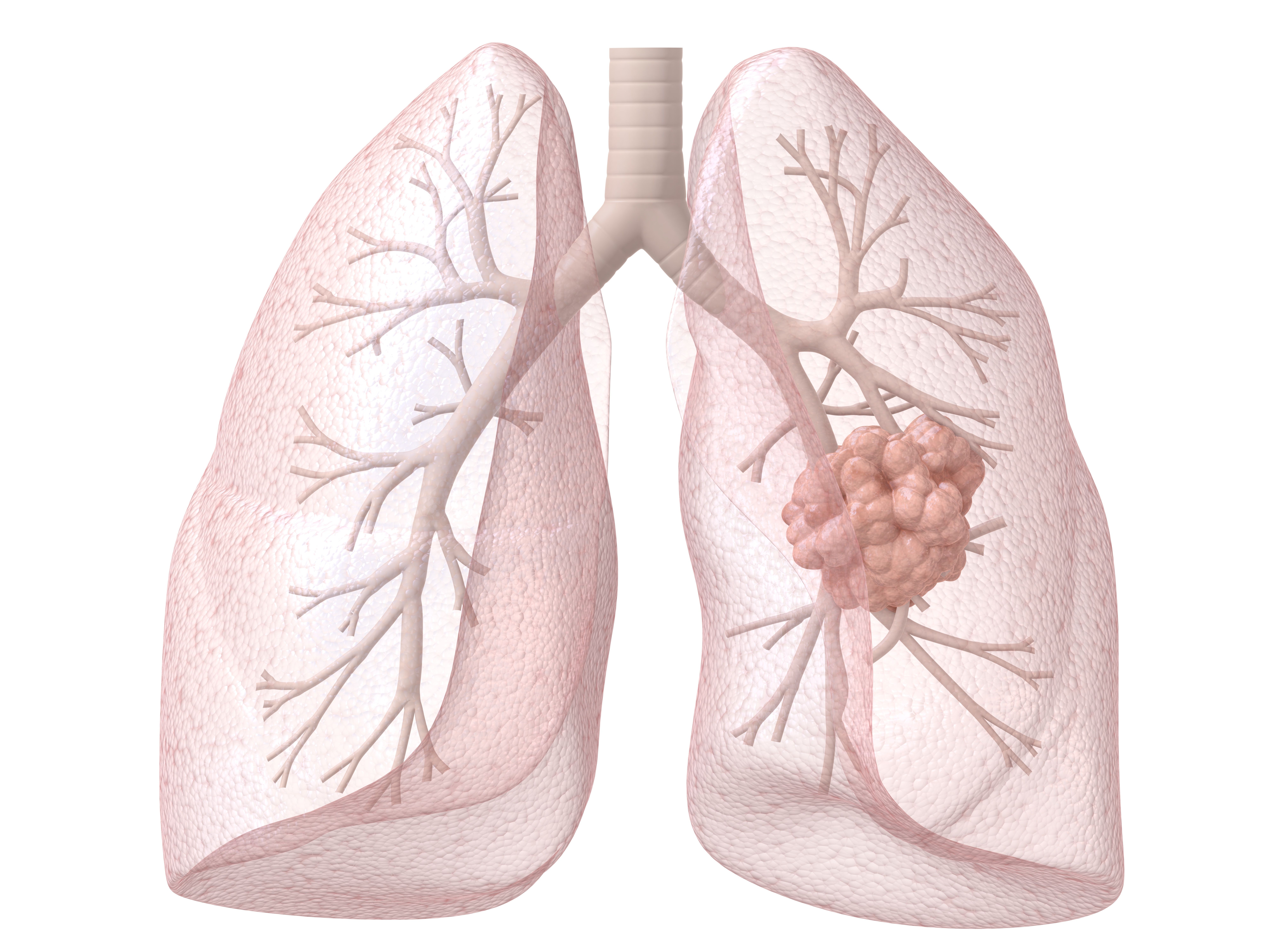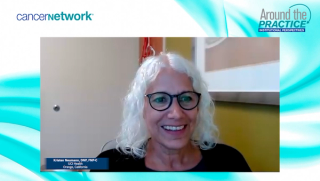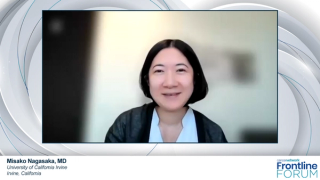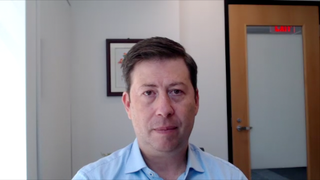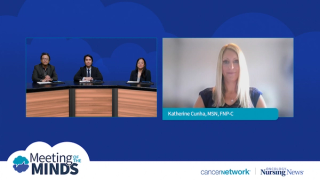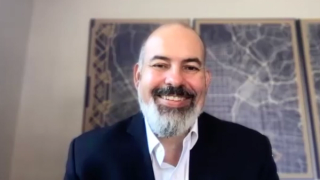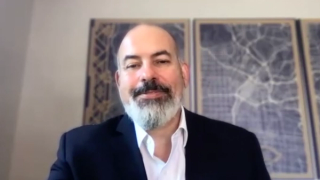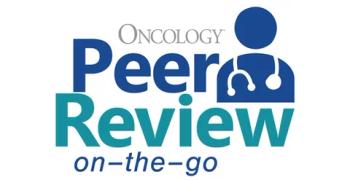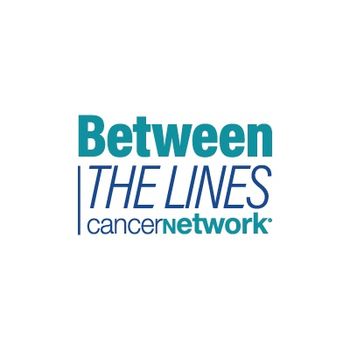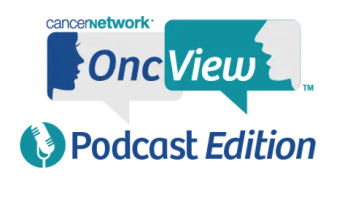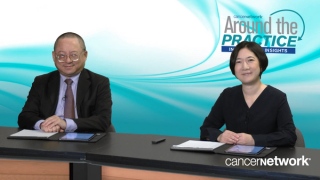
Non-Small Cell Lung Cancer (NSCLC)
Latest News
Video Series
Latest Videos
Podcasts
CME Content
More News

ILKN421H plus pembrolizumab previously showed antitumor activity among patients with frontline non–small cell lung cancer in a phase 1 trial.

Improvements in safety were observed without compromising efficacy after non-myeloablative lymphodepletion was reduced in this NSCLC population.

Data from the phase 2 TUXEDO-3 trial support patritumab deruxtecan as a novel treatment option across different cancer populations with brain metastases.


Data from the REZILIENT2 trial show meaningful intracranial activity in patients with NSCLC harboring EGFR exon 20 insertions or other uncommon mutations.

Alectinib exhibited a CNS DFS improvement, with a 63% reduction in the risk of this event, and 4-year CNS DFS rate was 90.4% vs 76.1% with chemotherapy.

Retrospective cohort findings may inform tailored treatment approaches for frontline metastatic BRAF V600E–mutated non–small cell lung cancer.

Data from the KEYNOTE-671 trial support the use of pembrolizumab among patients with non–small cell lung cancer in the perioperative setting.

Data from the phase 3 HARMONi-6 study may support ivonescimab plus chemotherapy as a new standard of care in advanced squamous non–small cell lung cancer.

OptiTROP-Lung04 data show sacituzumab tirumotecan cut the risk of progression or death by 51% in patients with nonsquamous EGFR-mutated NSCLC resistant to EGFR TKIs.

The SKYSCRAPER-03 trial revealed that tiragolumab plus atezolizumab failed to improve progression-free survival compared with durvalumab in NSCLC.

Osimertinib plus chemotherapy significantly improved overall survival in EGFR-mutated NSCLC, outperforming monotherapy across various prognostic factors.

Osimertinib and local consolidative therapy was a safe and effective strategy to extend disease control in patients with advanced EGFR-mutant NSCLC.
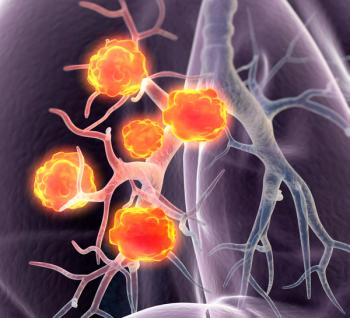
Alectinib shows promising long-term survival benefits over crizotinib for advanced ALK-positive NSCLC, highlighting significant clinical advancements.

Sevabertinib monotherapy was deemed tolerable across various cohorts of patients who were pretreated and treatment-naïve with HER2-mutant advanced NSCLC.

Results from the Beamion LUNG-1 study showed that first-line zongertinib yielded continued benefit for patients with HER2-mutated NSCLC.

The safety profile of durvalumab after radiotherapy was consistent with durvalumab after chemoradiotherapy among those with unresectable stage III NSCLC.
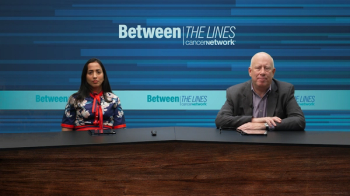
Panelists discuss how the field is shifting from reactive to proactive management of dermatologic adverse events, with future developments potentially including new topical treatments and integrated dermatology support within oncology practices.

Treatment-related AEs with sunvozertinib were consistent with EGFR tyrosine kinase inhibitors in patients with NSCLC with EGFR exon 20 insertion mutations.

Panelists discuss how the COCOON regimen's tolerability and effectiveness in reducing dose interruptions will improve patient experience and outcomes, requiring substantial nursing support and patient education for successful implementation in clinical practice.

Panelists discuss how the COCOON study demonstrated a significant reduction in grade 2 or higher dermatologic adverse events from 73% to 41%, with particularly notable improvements in face, body, and scalp rashes while maintaining comparable response rates.

Long-term data from the STARS trial affirm stereotactic radiation as a strong alternative to surgery for patients with operable stage I NSCLC.

The efficacy of TTFields was greater among patients who received immune checkpoint inhibition for the treatment of brain metastatic NSCLC.

Experts at City of Hope explore innovative immunotherapy strategies for non-small cell lung cancer, highlighting efficacy and toxicity management in treatment.

Panelists discuss how the COCOON trial design represents a straightforward approach using standard practice medications, though implementation challenges include patient compliance with the complex 4-drug regimen requiring significant education and support staff involvement.






